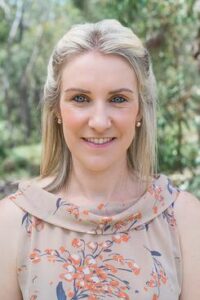
Around 20% of Australian children fail to meet the minimum reading standard by the time they reach school leaving age, with the most recent NAPLAN results revealing that roughly 10% of students across all year levels require additional support in reading. Furthermore, First Nations children and children residing in remote areas or attending disadvantaged schools exhibit even lower reading performance.
Dr Lisa Furlong from Flinders Caring Futures Institute explains that there is a deficiency in the training of Australian teachers during their university education when it comes to effectively teaching reading. Additionally, children struggling with learning disorders such as dyslexia can encounter obstacles in accessing extra support due to financial constraints, geographical limitations, and extensive service waiting lists.

Research indicates that children with reading challenges face a heightened risk of persisting academic, social and financial difficulties as they mature.
“Learning to read is a fundamental life skill and a basic human right. It is essential not only for personal growth and development but also for the overall health and wellbeing of the general population,” Dr Furlong said, emphasising the significance of achieving reading proficiency. “Furthermore, students who struggle with reading are more likely to experience academic underachievement, disruptive school behaviour, poor mental health outcomes, limited employment prospects, reduced earning potential in adulthood, and overrepresentation in the youth justice system.”
Dr Furlong leads and co-leads several collaborative projects with institutions such as the Australian Catholic University, La Trobe University, Macquarie University, and the University of Canterbury with leading researchers in this field including Professor Pamela Snow, Associate Professor Tanya Serry, Professor Gail Gillon, Professor Brigid McNeill, and Associate Professor Saskia Kohnen.
These projects focus on improving the quality of reading instruction provided by teachers to all children; improving speech pathologists’ capacity to work in the literacy domain; and, improving access to reading interventions for children who require additional support using technology-based models of delivery, like telepractice and mobile health apps.
One noteworthy project that is in preparation, is the development of a mobile app that can be used by young children to support the development of their early literacy skills.
“By creating a mobile app that supports young children in learning to read, our objective is to ensure that every child, regardless of their geographical location, can access early literacy support, serving to fill a gap as children wait for services or to provide a higher dosage of practice activities outside of clinical settings,” Dr Furlong explained.
To inform the development of this mobile app, a world-first evidence-based evaluation of mobile apps for early literacy skills is underway, adopting a systematic review process to identify and evaluate apps available on Google Play and the App Store claiming to support early literacy skill development.
Other projects are focussed on building the capabilities of teachers and speech pathologists to deliver effective instruction and intervention for oral language and literacy. This includes exploring collaborative teaching practices between teachers and speech pathologists for early literacy and oral language instruction within classrooms, transforming reading instruction in schools to align with the Science of Reading, and enhancing the preparation of teachers and speech pathologists in universities to deliver high-quality, evidence-based reading instruction and intervention.
“Students who do not achieve proficiency in reading by grade three face substantial challenges throughout their schooling and potentially face lifelong consequences,” Dr Furlong said, underlining the significance of early reading achievement.
Dr Furlong concluded, “I’m sure we can all appreciate the importance of being a literate member of society. As a researcher, I can help children by exploring ways in which we can improve access to support and enhance the quality of the instruction and intervention they receive.

